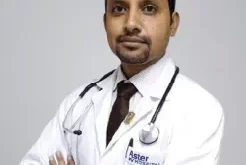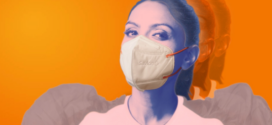 Muscular Dystrophy (MD) is a group of rare genetic disorders that affect muscle function, often manifesting in childhood and leading to progressive muscle weakness and loss of mobility. The diagnosis of MD can be devastating for families, as it not only impacts the child’s physical abilities but also their quality of life. However, recent advancements in regenerative medicine have opened up new avenues for treatment, offering hope to pediatric patients and their families.
Muscular Dystrophy (MD) is a group of rare genetic disorders that affect muscle function, often manifesting in childhood and leading to progressive muscle weakness and loss of mobility. The diagnosis of MD can be devastating for families, as it not only impacts the child’s physical abilities but also their quality of life. However, recent advancements in regenerative medicine have opened up new avenues for treatment, offering hope to pediatric patients and their families.
Understanding Muscular Dystrophy
Muscular Dystrophy comprises a range of genetic conditions that primarily affect the muscles responsible for movement. These conditions are characterized by the degeneration and weakening of muscle fibers, which ultimately results in muscle wasting and reduced mobility. In many cases, MD leads to significant disability, making even simple tasks a challenge for affected children.
Traditional MD Treatments
Historically, treatment options for MD have been limited, focusing mainly on symptom management and supportive care. Physical therapy, assistive devices, and medications have been the primary approaches to address the condition’s impact on patients’ lives. However, these treatments do not offer a cure and are often only marginally effective in slowing the progression of the disease.
The Promise of Regenerative Medicine
Regenerative medicine has emerged as a beacon of hope for pediatric patients with Muscular Dystrophy. This innovative field harnesses the body’s own natural processes to repair, replace, or regenerate damaged tissues, including muscle fibers. Several exciting developments in regenerative medicine are showing promise in the treatment of MD.
· Stem Cell Therapy: Stem cell therapies hold significant potential for regenerating muscle tissue. By introducing healthy stem cells into affected muscles, researchers aim to replace damaged cells and improve muscle function. Early studies and clinical trials have demonstrated encouraging results, with some patients experiencing increased strength and mobility.
· Gene Therapy: Some forms of Muscular Dystrophy are caused by specific genetic mutations. Gene therapy techniques involve correcting or replacing faulty genes to address the root cause of the disease. While still in the experimental stages, gene therapies have shown promise in preclinical studies and offer a potential path to a cure for certain MD subtypes.
· Exon Skipping: Exon skipping is a technique that aims to modify the genetic code to bypass faulty sections, allowing the production of functional proteins. This approach is particularly relevant for Duchenne Muscular Dystrophy, one of the most common and severe forms of MD. Clinical trials involving exon-skipping therapies have shown encouraging outcomes, offering renewed hope for affected children.
Challenges and Future Directions
While the potential of regenerative medicine in treating Muscular Dystrophy is undeniable, there are challenges to overcome. These include refining treatment techniques, ensuring their long-term safety, and making these therapies more widely accessible to all patients who could benefit from them. Collaborative efforts among researchers, clinicians, and pharmaceutical companies are essential to bridge these gaps and ensure that cutting-edge treatments become accessible to all patients in need.
Conclusion
The treatment of Muscular Dystrophy in pediatric patients has seen remarkable progress in recent years, thanks to the advent of regenerative medicine. While these therapies are not yet widely available, the potential for significant improvements in the quality of life for MD patients is on the horizon. With continued research and collaboration, the dream of a cure for Muscular Dystrophy may one day become a reality, providing hope and relief to countless children and their families around the world.
Written By: – Dr Pradeep Mahajan, Regenerative Medicine Researcher and Founder of StemRx BioScience Solutions India
 Newspatrolling.com News cum Content Syndication Portal Online
Newspatrolling.com News cum Content Syndication Portal Online





